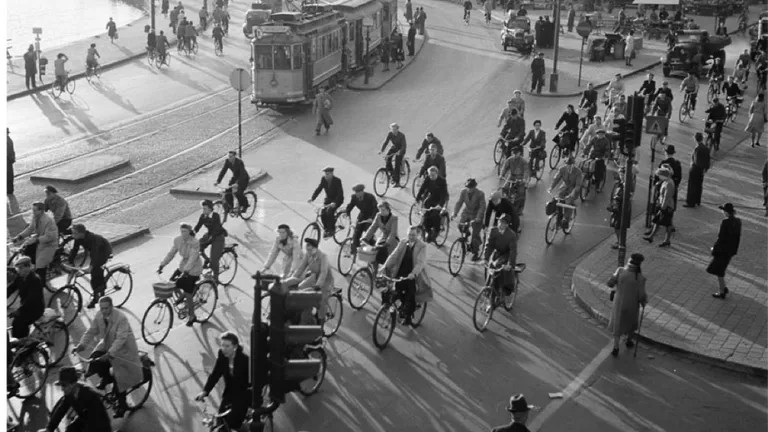
I will question what level of consumption is sufficient to live comfortably. Fact: Without “sufficiency,” gains from increasing efficiency in a growth-based economy are lost. Source: A Critique of Techno-Optimism (PDF)
In his book, “Living the 1.5 Degree Lifestyle,” Lloyd Alter explores the idea of what is enough, valuing simple solutions that use less of everything and cost less. For example:
- Now that we use LED light bulbs, is it ok to leave the lights on longer?
- Does buying a more efficient refrigerator mean I can now buy a bigger one?
- Can a more efficient clothes dryer ever be more efficient than a clothesline?
- Do heat pumps and better insulation mean I can have a bigger home? Do we need a bigger homes? Or do we need more small, affordable housing options?
A switch to electric vehicles (EVs) is one of the changes we need to reduce carbon emissions. If I drive an EV is it ok to drive more? Will widespread adoption of EVs contribute to urban sprawl? Or are walking, cycling and public transport more viable options?
We must reduce our emissions and our demand for resources and at the same time provide a decent living standard for everyone. We all need to consider what is sufficient.
More Resources
- Efficiency Without Sufficiency Is Lost (treehugger.com)
- Jevons paradox – Wikipedia
- Climate Change 2022: Mitigation of Climate Change (ipcc.ch)
- Laundry, Sufficiency and the Climate Pact – Energy Cities (energy-cities.eu)
Return to New Challenges List